Anxiety can feel like an endless loop of worry, unease, and restlessness, affecting not only your mental health but also your ability to enjoy life. With millions of people seeking relief, the options can often feel overwhelming or ineffective.
What if the solution to managing anxiety lies in a simple, naturally occurring mineral?
Lithium, often overshadowed by its high-dose pharmaceutical applications, has a lesser-known but powerful ability to alleviate anxiety at much lower doses.
In the world of functional medicine, lithium is celebrated for its role in calming overactive nervous systems, balancing mood, and reducing the physical symptoms of stress.
Understanding Anxiety and Its Triggers
Anxiety is more than just feeling stressed or overwhelmed—it’s a complex interaction between the brain, nervous system, and body. While occasional anxiety is a normal response to challenges, chronic anxiety can interfere with sleep, digestion, focus, and overall well-being.
Researchers now recognize that anxiety isn’t just psychological; it has clear biological roots, including imbalances in neurotransmitters, overactive stress responses, and even chronic inflammation.
One of the key players in anxiety is the hypothalamic-pituitary-adrenal (HPA) axis, the system that controls the body’s stress response. When the HPA axis is overactive, the body remains in a heightened state of tension, flooding the system with cortisol and other stress hormones.
Inflammation in the brain has also been linked to increased anxiety, as it disrupts normal neurotransmitter activity and weakens the brain’s ability to regulate emotions. Studies suggest that individuals with anxiety disorders often have higher levels of inflammatory markers and an exaggerated stress response, making it harder to return to a state of calm.
How Lithium Calms an Overactive Nervous System
Lithium is well-known for its role in stabilizing mood, but research shows it also has profound effects on the stress response system. Studies indicate that lithium helps regulate the HPA axis, preventing stress hormones from remaining elevated for too long. This allows the nervous system to return to baseline more quickly, reducing feelings of prolonged anxiety.
Beyond stress hormones, lithium also influences key neurotransmitters involved in anxiety. Research shows that it enhances serotonin activity, which promotes emotional stability, while also increasing GABA, a calming neurotransmitter that helps counteract excessive brain activity. Additionally, lithium modulates dopamine levels, preventing the overstimulation that can lead to racing thoughts and restlessness.
The Role of Lithium in Physical Symptoms of Anxiety
Inflammation is another major factor in anxiety, as excess inflammation can interfere with normal brain signaling.
Lithium has been shown to have anti-inflammatory effects in the brain, reducing cytokine levels and oxidative stress, both of which contribute to anxiety symptoms. By addressing inflammation, lithium not only helps with emotional regulation but may also improve cognitive function and mental clarity.
Sleep disturbances are common in those with anxiety, often making symptoms worse. Lithium has been found to promote deeper, more restorative sleep by regulating circadian rhythms and increasing slow-wave sleep, the stage associated with feeling refreshed in the morning. Better sleep, in turn, helps the brain manage stress more effectively.
Safe Use of Lithium for Anxiety Management
Unlike high-dose prescription lithium, which is used for bipolar disorder, low-dose lithium supplementation is well-tolerated and does not require medical monitoring. Functional Medicine practitioners often suggest that doses between one and five milligrams per day can provide anxiety relief without the side effects associated with higher doses.
Lithium orotate is the most commonly used form in functional medicine, as it has better absorption than other forms. While generally safe, individuals with kidney disease or thyroid disorders should consult a healthcare provider before beginning supplementation.
Combining Lithium with Lifestyle Changes
Lithium is most effective when combined with other approaches that support nervous system health. Mindfulness practices such as meditation and deep breathing have been shown to lower cortisol levels and complement lithium’s calming effects.
Nutritional strategies can also play a role, as magnesium and omega-3 fatty acids help regulate brain function and reduce inflammation, further supporting lithium’s benefits.
For those struggling with chronic anxiety, lithium offers a unique and well-researched option that addresses both the psychological and physiological aspects of stress. By helping to balance neurotransmitters, regulate stress hormones, and reduce inflammation, lithium provides a foundation for long-term emotional resilience.
Calming Anxiety Through Lithium
Anxiety doesn’t have to control your life.
Lithium, at safe and effective low doses, offers a natural way to calm overactive stress responses, balance mood, and address both the mental and physical symptoms of anxiety. Unlike pharmaceutical medications, low-dose lithium works gently, promoting long-term emotional resilience without significant side effects.
When combined with lifestyle adjustments and other functional approaches, lithium becomes part of a holistic strategy to manage anxiety. If you’ve been searching for a sustainable way to reclaim peace of mind, this overlooked mineral may hold the key to a calmer, more balanced life.


